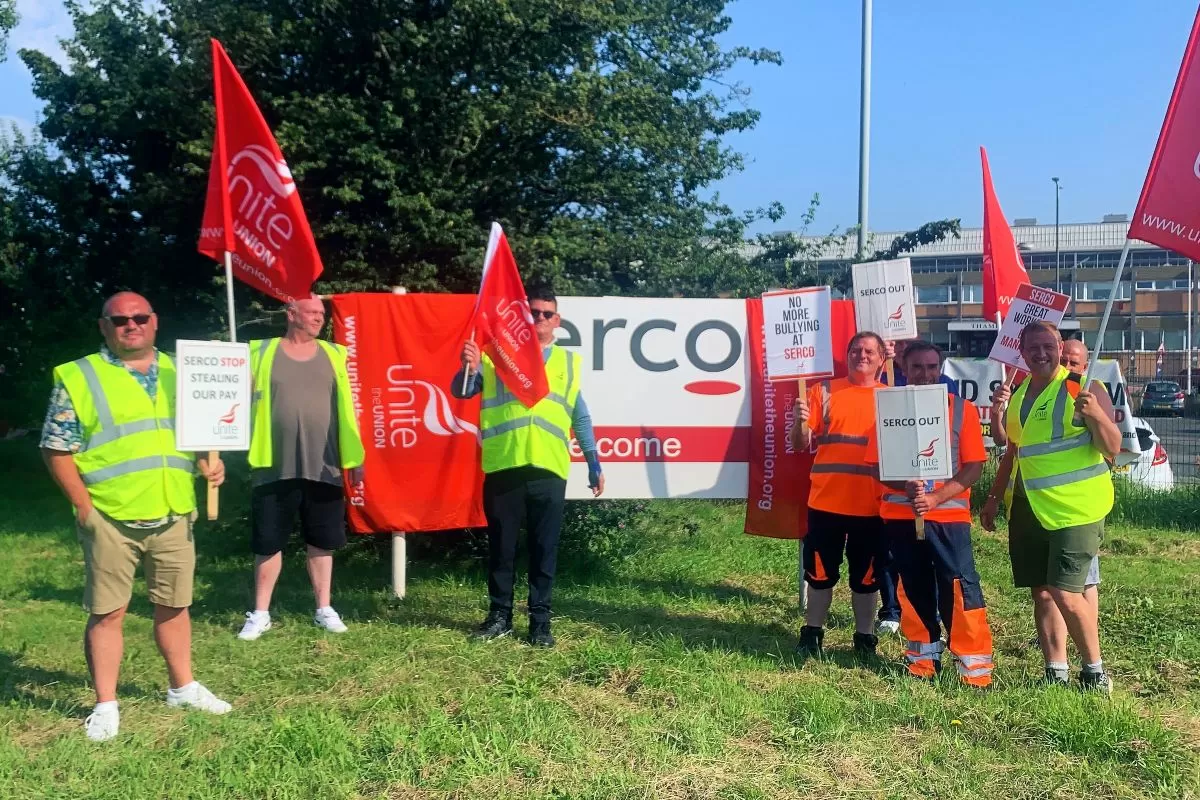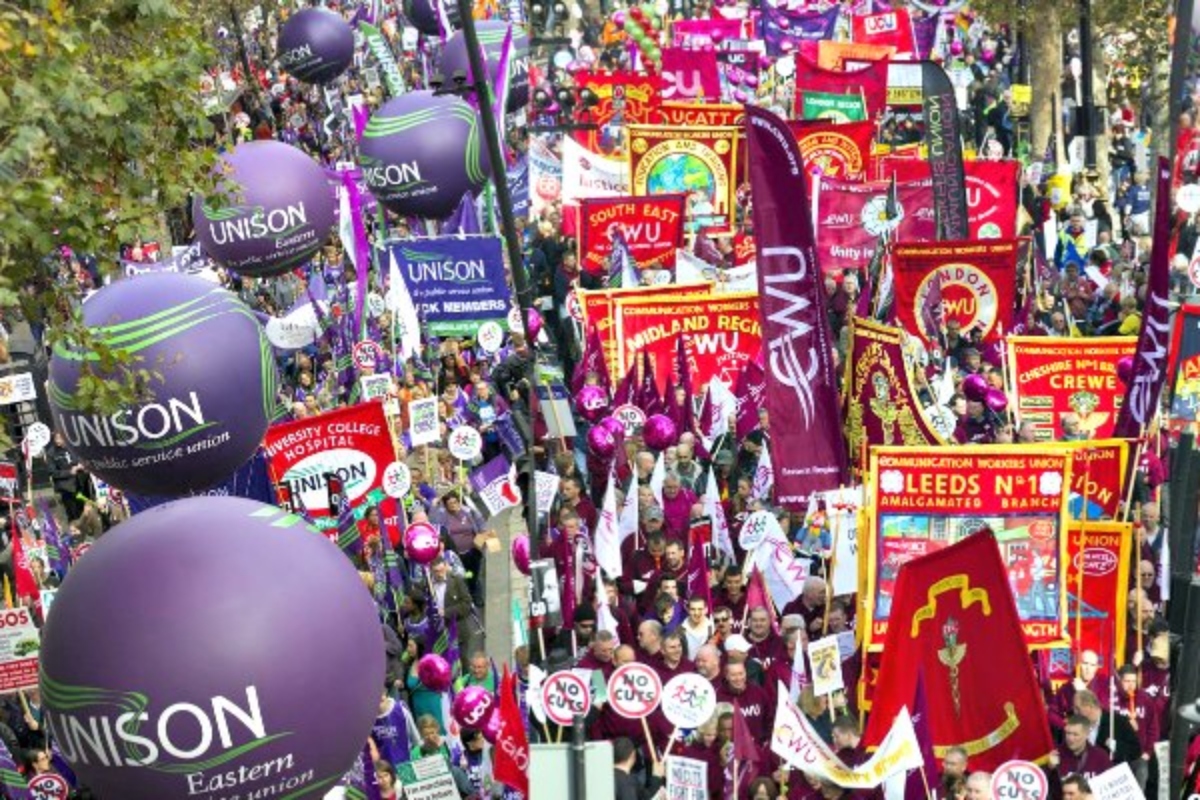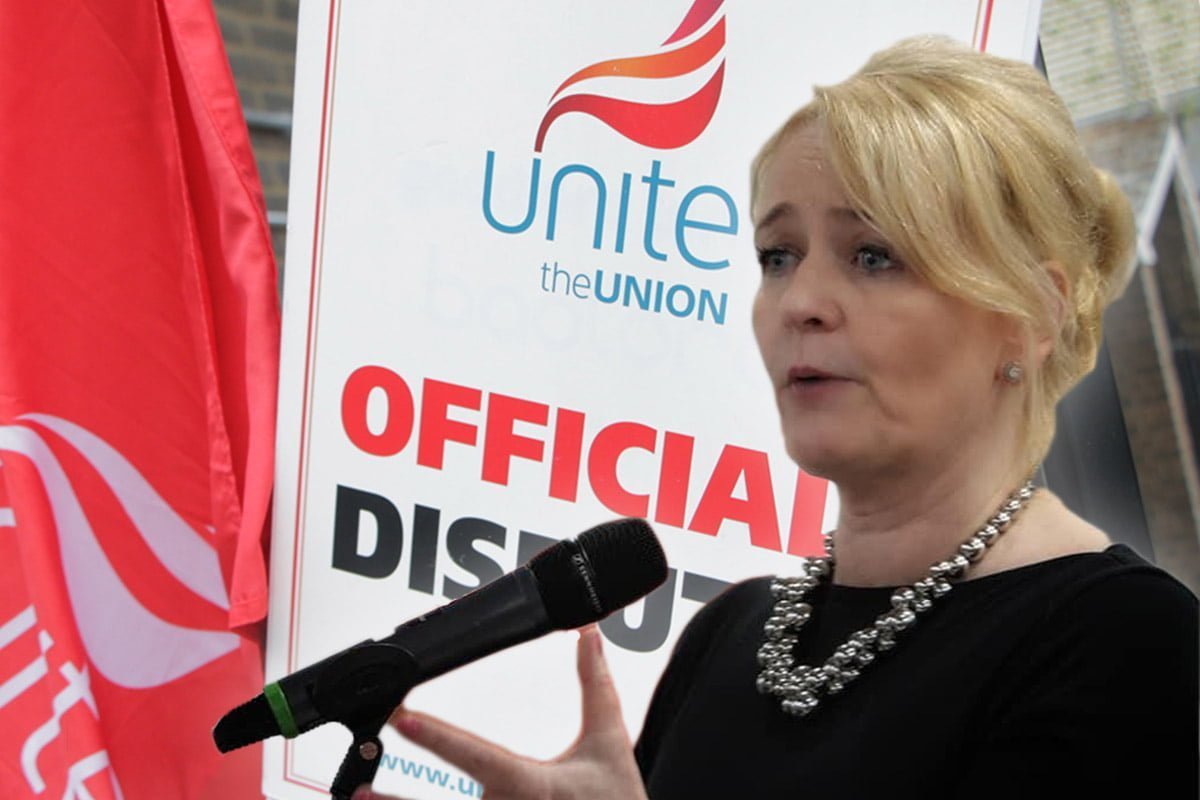Sharon Graham’s first 100 days as Unite general secretary has seen a record number of disputes for the union. As the industrial struggle heats up, isolated actions must be generalised into a political struggle to transform society.
It has now been over 100 days since Sharon Graham’s election as general secretary of Unite the Union.
Her victory – which took many by surprise – dealt a blow to the establishment in the labour movement. And her record since her election has certainly been one of dealing blows to the bosses.
Elected on a ticket of ‘back to the workplace’, Graham is certainly delivering on that. Her first 100 days as general secretary has seen a record number of disputes for the union. Some have even referred to it as a ‘shock-and-awe’ campaign against the bosses.
“Unite is now dedicated to doing what it says on the trade union tin – fighting for jobs, pay, and conditions,” Sharon Graham stated in a recent press release.
Pay rises

The facts speak for themselves. In terms of pay deals, Unite has won 43 pay deals for its members since Graham became general secretary (GS) – totalling £25 million into the pockets of its members.
In fact, 32 of these pay deals were won precisely when either votes for strike action or actual strikes forced employers to offer better deals.
There are numerous examples. In August, workers at Kaefer won a 5.5% pay increase, alongside an increased holiday entitlement of two days within six months.
In September, a bumper pay increase of 31% and a one-off payment of £2,500 was secured by Argos HGV drivers in the North West. In the North East, Wincanton Morrisons drivers won 24%.
In London, Bexley bin workers won 11%, going from the lowest to some of the highest paid bin workers in the region. DHL workers in Scotland won a 10% pay rise, while in Dartford they won a 6.2% increase.
The list could go on. What is clear is that under Graham, the union is increasingly supporting its members to take action – and to win.
Disputes unit and combines
The battles being fought and won by Graham’s Unite are welcome. Clearly striking is proving to get the goods for workers.
There have been some measures introduced by Graham to help support these wins. For instance, a ‘disputes unit’ has been established to assist members, by ensuring they have all the information and support needed to win disputes. Graham has said this will triple in size in the coming months, suggesting increasing action is on the cards.
It’s been a busy first 100 days as @unitetheunion GS, there’s lots more to do together. #SGGS100 #JobsPayConditions
?Sector combines established, more to come
?Disputes unit – to triple in size
?26 disputes won so far
?legal representation for our reps when needed pic.twitter.com/CnpB9alEL0— Sharon Graham (@UniteSharon) December 11, 2021
Much has also been made of her introduction of industrial ‘combines’. These bring together workplace reps from specific industries together to share knowledge and experience. The aim is to then help in the fight for sector-wide improvements.
At a time when workers are increasingly under the cosh, a union leadership backing its members – with deeds, not words – is to be applauded.
Cause and effect
Nonetheless, we cannot put this huge increase in successful industrial action all down to some magic touch or special organisational changes introduced by Graham.
Indeed, even before Graham’s election, workers organised in Unite were moving into struggle. For example, resistance to ‘fire and rehire’ was already underway, such as in the Thurrock bin workers’ dispute that began in April.
With Starmer’s Labour behaving like a junior partner in a national government, workers are not looking to the Labour Party for salvation from attacks on their living standards. Instead, they are turning to the industrial front to take action in defence of their livelihoods. This mood of militancy was there long before Graham became GS.
In this regard, Graham’s radical campaign clearly struck a chord with the membership. She was the candidate offering exactly that. Now with ever growing pressure from the rank and file, she is delivering on that. It is a case of cause becoming effect and effect becoming cause.
Intensifying class struggle

This is part of a general picture: one of workers everywhere increasingly moving into struggle – from university staff in the UCU and tube workers in the RMT; to binmen in the GMB and local government workers in Unison.
This is all resulting in a shake-up of the unions, such as with the victory of the #TimeForRealChange slate in Unison. Graham’s election and progressive leadership is also a reflection of this pattern of intensifying class struggle.
Graham certainly deserves praise for setting a fighting tone and ensuring members feel supported by the union. A leadership ready and willing to go to bat for its members is the very least we deserve.
But the industrial struggle is not separated from the political struggle, despite what Graham indicated in her leadership campaign. The Tories will be forced to implement harsh cuts in the coming period. And the capitalist class they represent will be squeezing every drop of surplus value it can out of the working class.
This is a finished recipe for explosive class struggle across society. As a result, every attempt must be made to link up struggles across the labour movement to their necessary political demands, such as the nationalisation of industries under workers’ control.
Indeed, such demands are already supported by Unite members. This was evidenced at Unite’s recent policy conference, where delegates voted in favour of “the common ownership, under democratic control and management by working people, of the commanding heights of the economy”.
Words alone are not sufficient, however. They must serve as the union’s guide to action, and be incorporated into a broad strategy across the labour movement.
This should start with a public sector-wide strike to build towards coordinated action to bring down the Tory government. As Graham said so herself: “No one in Westminster is going to ride in and save us. We are going to have to do it ourselves.”
Ultimately, this must be with the aim of achieving the socialist transformation of society. Only this will guarantee decent jobs, pay, and conditions for workers everywhere.






